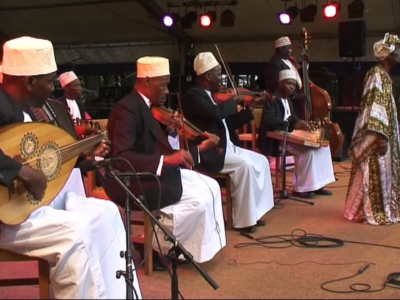For reasons that are mainly attributed to Tanzania‘s post independence political ideology of Ujamaa, which emphasized strong national identity through the extensive use of Kiswahili, the dominant language in the Tanzanian blogosphere is Kiswahili. There are new Tanzanian bloggers, however, emerging using either English or both English and Kiswahili.
Until May this year, when an agricultural researcher in Morogoro, Hector Mongi, and an agricultural engineer in Dar Es Salaam, Isaria Mwende, started blogging in English, there was only a single English blog in Tanzanian blogosphere and over 15 Kiswahili blogs. Hector and Isaria started blogging in order to share agricultural information with their colleagues in Tanzania and elsewhere.
Late last month, a Tanzanian PhD student, Idya Nkya, after meeting Ethan in Cape Town, decided not only to blog in Kiswahili as he has been doing since May this year but also in English. He has set up an English blog, The Other Side of Africa, hoping to portray positive images of life, hope, and optimism in Africa, which are rarely covered in the global mainstream media. Early this week, another English blogger, Peter John, who works in the computer industry sector in Dar Es Salaam, entered the Tanzanian blogosphere. Peter plans to write mostly about computer technology.
Ethan's post on the plight of the bilingual bloggers has made an interesting reading to bilingual bloggers emerging on Tanzanian blogosphere. Mtafiti is a Tanzanian female student in Texas. She blogs in Kiswahili and Kichagga, the language spoken by the Chagga. Florence who works in the public relations industry in Dar Es Salaam writes in both Kiswahili and English. She writes about different topics ranging from the reconstruction of Kilwa Ruins and urban tourism to Tanzanian musicians who behave wildly on stage. Esther, a schoolteacher in Dar Es Salaam, has set up English/Kiswahili blog, Indigenous Bank. She plans to write about indigenous knowledge and culture. However, she has not started posting on a regular basis. The latest bilingual blogger is Jeff Msangi, a graduate student at the University of York in Canada. Jeff writes about his experience in Canada and socio-political issues in Tanzania and other parts of the world.
Another interesting development in Tanzanian blogosphere is the birth of blogs set up by active politicians. Early adopters of blogging technology in Tanzanian blogosphere were mostly journalists. Some of the reasons for this are, firstly, most people in Tanzania associate expression of opinions and ideas in written form for public consumption with traditional journalism, and secondly, most journalists have easier access to computers and the Internet in newsrooms than ordinary citizens. Even journalists who work in newsrooms without such facilities, the nature of their work forces them to use Internet cafes more often than the general public. Things are changing, though, as more people start to understand that every citizen has a story to tell and that advances in information technology empower ordinary citizens with tools to share their stories and at the same time Internet access in Tanzania is increasingly becoming available and affordable.
The opposition party, Chama cha Demokrasia na Maendeleo (CHADEMA) (the Party of Democracy and Development) is one of the few stable and respected political parties in Tanzania. As part of its campaign strategies, CHADEMA's chairman and presidential candidate, Freeman Mbowe has set up a blog as well as its Secretary-General, Dr. Wilbroad Slaa, the Director for Foreign Affairs, Zitto Kabwe, and the Director for Youth Affairs, John Mnyika. None of them has started posting as of yet.
Two of my former students at the School for International Training, Tait Davidson and Jenny Venecek are blogging about their experiences as Peace Corps volunteers in rural Tanzania. Two of their friends, Jen and Thais, are blogging as well about their experiences as American volunteers in Tanzania.
Although Tanzanian bloggers at this point do not post as frequently, I anticipate this will change as Tanzanian blogosphere is still in its infant stage. Tanzanian English and bilingual bloggers are creating new possibilities for conversation within and between cultures that are extremely exciting. As presidential and parliamentary campaigns in Tanzania get intense, it is possible that more politicians will adopt blogging as an effective tool for campaigning, particularly for reaching young Tanzanians and drawing media attention. This might help to get more Tanzanians involved with blogging.







1 comment
It is very good ideas Msangi.. then we as Tanzanian people will read about Tanzania